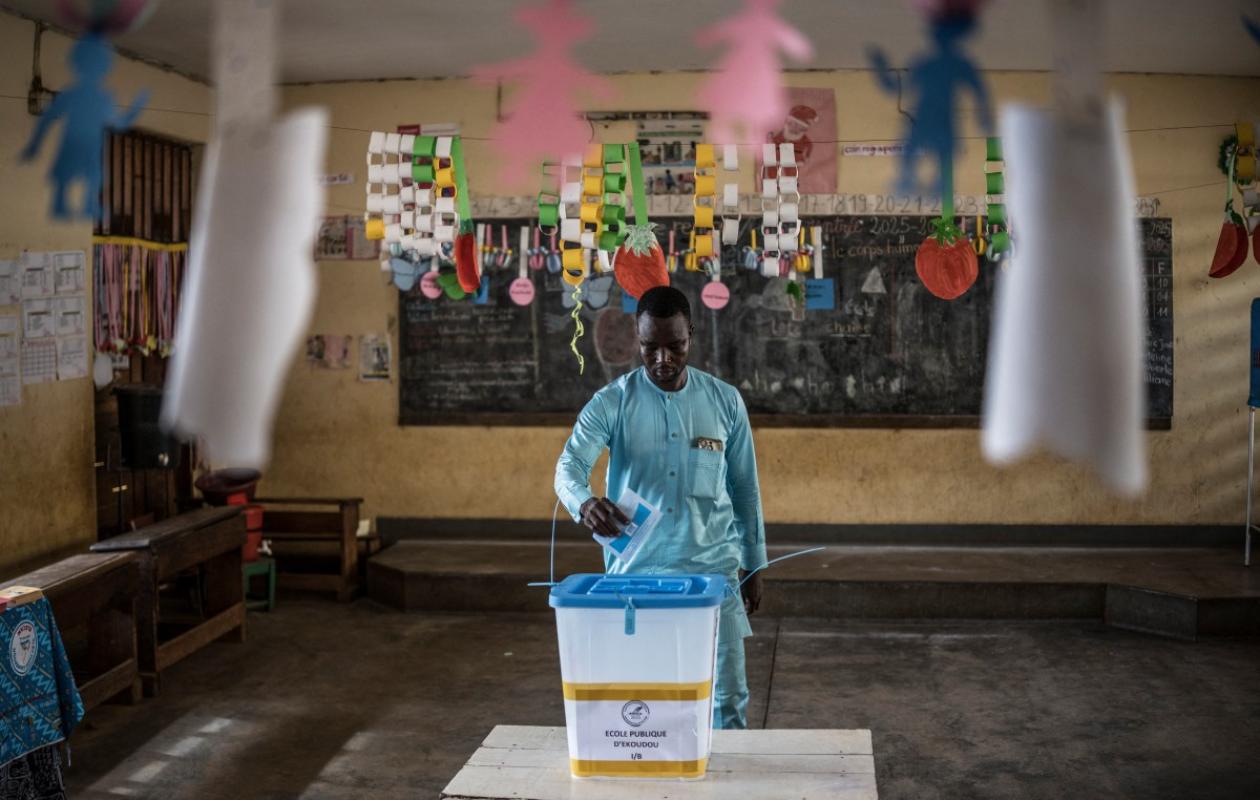
Le Cameroun aux urnes pour la présidentielle, Biya grand favori pour un 8e mandat
Cameroonian voters cast their ballots on Sunday in the presidential election, in which President Paul Biya, 92 years old and having been in power for 43 years, is considered the favorite. He faces 11 candidates, including his former minister, Issa Tchiroma Bakary, who is generating some unexpected enthusiasm.
Polling stations opened at 8:00 a.m. (07:00 GMT) and will close at 5:00 p.m. GMT for this single-round election.
Most Cameroonians have always lived under the rule of Biya, in power since 1982, who has always won with a score of more than 70% over the past 20 years.
"Everything seems well organized. So far, people haven't rushed to vote, but it's still early," notes Ismael Imoua, a 48-year-old entrepreneur. He was the first to vote in his office in Yaoundé's 2nd arrondissement, "for a change" for a president he considers "too old."
"We must not be naive, we know very well that the governing system has many means to obtain results that benefit it," Stéphane Akoa, a Cameroonian political scientist, explained to AFP.
He notes, however, that the campaign in recent days has been "much more lively" than usual and that "this election is therefore perhaps more likely to surprise us," in a country where 40% of the population will live below the poverty line in 2024, according to the World Bank.
The Constitutional Council has until October 26 to announce the final results. In 2018, they were announced 15 days after the election.
Paul Biya, 92, has, as usual, remained very discreet during the election campaign. He finally appeared in public on Tuesday for the first time since May, visibly in good shape, holding a campaign rally, as he did in 2018, in Maroua, in the Far North region, a strategic location with more than 1.2 million voters, the second largest reserve of votes in the country.
- Striking contrast -
His 11 rivals have made numerous public appearances, promising to turn the page on the long reign and iron fist of Cameroon's second president since its independence from France in 1960.
On Thursday evening, his main rival, Issa Tchiroma Bakary, 79, who left the government in June and joined the opposition after 20 years in the presidential fold, in turn held a rally in Maroua.
In his native region, he seemed to spark an unprecedented popular surge, greeted in the streets by thousands of supporters brandishing placards praising "Tchiroma the Savior." This was a striking contrast to Paul Biya's rally, held before a sparse audience of a few hundred people, compared to the 25,000 expected by his entourage.
Paul Biya's main opponent, Maurice Kamto, who came in second in the 2018 presidential election, saw his candidacy rejected by the Constitutional Council. Several NGOs, such as Human Rights Watch (HRW), subsequently expressed concerns about the "credibility of the electoral process."
- "Protect the vote" -
Some Cameroonians say they are disillusioned with the perpetuation of the "Biya system", while unemployment has reached 35% in major cities.
But in this country where half the population is under 20, "many young people want to vote and have gone to get their voter registration cards," noted political scientist Stéphane Akoa. He sees this as "a positive signal of change, but perhaps not strong enough to bring young people into the streets, as we have seen in Madagascar, Tunisia, and elsewhere."
Cameroonians complain about the high cost of living, the lack of clean water, healthcare and quality education, but these frustrations remain confined to social media at this stage.
The Ministry of Territorial Administration authorized 55,000 local and international election observers, including the African Union. Several platforms planned to compile the results independently to "protect the vote," drawing criticism from the government, which denounced attempts to "manipulate public opinion" and "proclaim falsified results."
The election will take place in the shadow of the deadly conflict between separatist groups and government forces in the predominantly English-speaking northwest and southwest regions. In the previous election in 2018, abstention was particularly high in these regions.
Commentaires (1)
Biya, pourtant très vieux, n’a pas craint les urnes. Les jeunes putschistes de l’AES, eux, bien que puissamment armés et financés, semblent craindre le verdict du peuple.
Participer à la Discussion